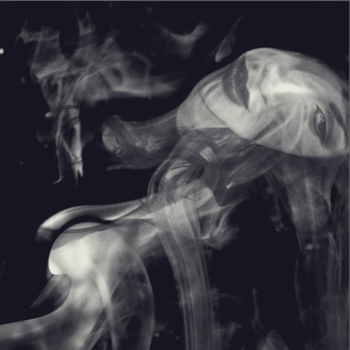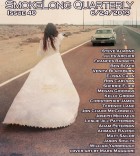What is the relationship of the narrator to the person whose life he is inhabiting?
Imaginary.
Every new turn feels surprising: the USS Dinette. The cat. The toothpaste. What was your process?
Once I had the basic premise of someone really really misunderstanding squatter’s rights, all of those details presented themselves very quickly, so it became a matter of culling them down to my favorites. I love when characters take a lot of minor, stupid things very seriously.
Tasting “the stumble of your life” is so evocative. What does it mean?
I think that has to depend on the reader, right? Evoking anything at all is really the goal. Which sounds like I’m dodging the question, but that was the purpose of the line—to gather up the story and take it somewhere else. To me it goes to a very specific and anxious young place where thoughts like the ones in the story can exist. But that’s just me.
What are you working on now? Any other work forthcoming?
I’ve got a longer story forthcoming later this summer in Requited, which feels very different to me from this one in some ways. Even looser reality kind of ways. I’ve been letting myself write weirder and weirder. And the story I’m currently working on is an extension of that, though how far it extends remains to be seen.
I think of a title as a sort of lens through which the reader can see the story from a particular perspective. The title of this piece was originally “Chinatown Baklava,” but you changed it after staff input/feedback. How do you think that might change a reader’s perception of the piece?
My hope is that it draws a reader’s attention to a layer of narrator/character disconnect (beyond what the shift to future tense might). Or at least does some work to question where exactly this story is coming from. I liked the original title but it doesn’t do a lot. And the more I think about this new one and the way it even grammatically relates to the story (and the consequences of that) the more I love it. So, thank you all for that.



 The core workshop of SmokeLong Fitness is all in writing, so you can take part from anywhere at anytime. We are excited about creating a supportive, consistent and structured environment for flash writers to work on their craft in a community. We are thrilled and proud to say that our workshop participants have won, placed, or been listed in every major flash competition. Community works.
The core workshop of SmokeLong Fitness is all in writing, so you can take part from anywhere at anytime. We are excited about creating a supportive, consistent and structured environment for flash writers to work on their craft in a community. We are thrilled and proud to say that our workshop participants have won, placed, or been listed in every major flash competition. Community works.